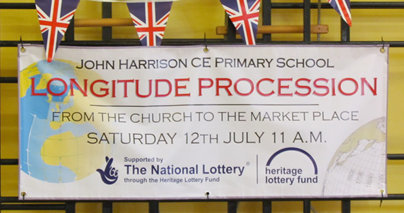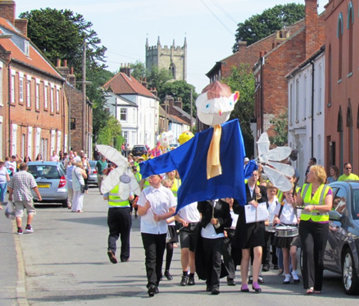People, Places and Things
The children of Y6 used existing materials such as books, the internet and museums as sources for their research. Most of all, though, they gained information and opinions from people.
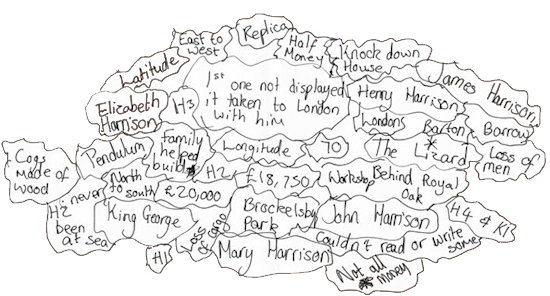
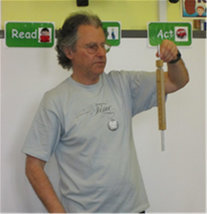
They had a day-long session with Andrew King, Freeman of the City of London, Liveryman of the Worshipful Company of Clockmakers and Vice Chairman of the Antiquarian Horological Society.
Andrew taught them about the life and work of John Harrison and the techniques he developed as he created his series of clocks and watches. Some of the questions which the children came up with are printed at the end of the booklet.
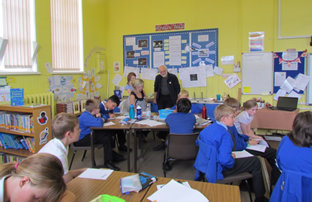
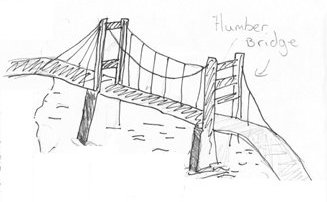
Pete Rogers, a marine engineer and sea captain, came and talked about the Humber, past and present.
Keith Miller, from English Heritage discussed what Barrow would have been like in Harrison’s day and how it has changed over the years.
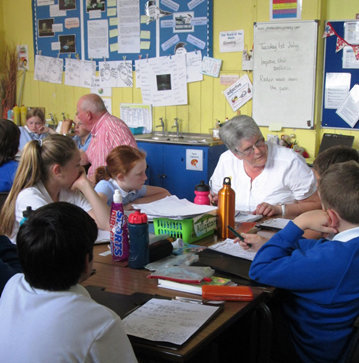
In addition, children carried out interviews in depth with four older residents of the village about their childhood and Barrow in the previous century. They also interviewed pensioners who attended the monthly Lunch Club.
These are some of the things pupils learnt from people who have lived in Barrow for a long time:
- Barrow used to have a lot more shops – there were three butchers, six or seven fruit and veg shops, a bakery and proper sweet shops! It was a more self-sufficient place altogether. There were also a lot more animals about: you’d see sheep, cows, horses and some people still kept a pig.
- People made their own amusements, though radio was very popular – and board games. Sports and outdoor games were played a lot, similar to today.
- No one liked school - it was very strict and the teachers weren’t nice. (One of the interviewees ran away!) It was common to be hit over the knuckles with a ruler and you had to write with a steel pen which you dipped in an ink-well. Children left school a lot younger than they do now, often without any qualifications.
- People were poorer and had fewer things. People often only had three sets of clothes and home-made clothes were very common. Washing and drying clothes was hard work without modern machines. Very few people had a washing machine but you might have a mangle to get the water out of things before hanging them on the line.
- Sometimes food was short. There might just be an apple or orange for dinner. Heating was expensive: mainly coal was used and some houses had no electricity. You had a bath once a week if you were lucky – or mucky.
- The New Holland ferry was important and very busy. It could carry up to 25 cars and you drove along the platform to get on to it. They were paddle steamers and often got stuck on the sand-banks. This all changed when the Humber Bridge opened in 1981. Earlier, horses and carts were still quite common. A few people had cars - ‘I remember our first Ford. It did 50 mph!’
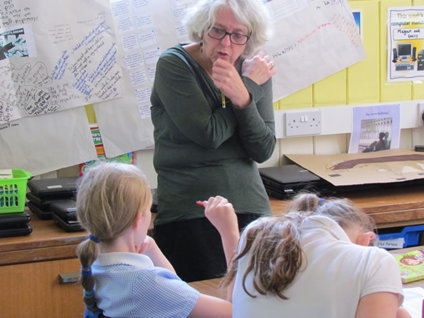
From local and Hull museums they learnt about the different ways in which information could be presented. They noted the importance of illustrations and pointed out how too much information could be overwhelming. They would have liked to build interactivity into the displays but unfortunately the budget did not permit it! They did appreciate that the progress of the project was being filmed and that aspects of their work would be available on line for anyone to access and for people to dip into.
The information that the pupils gathered fed into the new display boards and into the creation of a play. They Y6 pupils, with the help of Arts Worker Frances Kelly, scripted an original drama which they performed for the school and the parents over three performances, plus excerpts in the Market Place.
Click 'Harrison! the play script' to read the play.
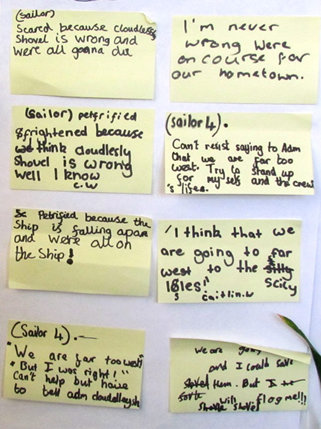
Beginning to work on the script
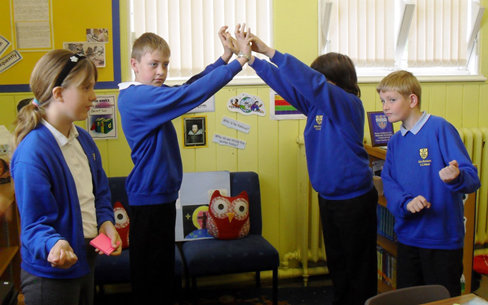
Developing the drama
Some of the things the children made for the procession and the play
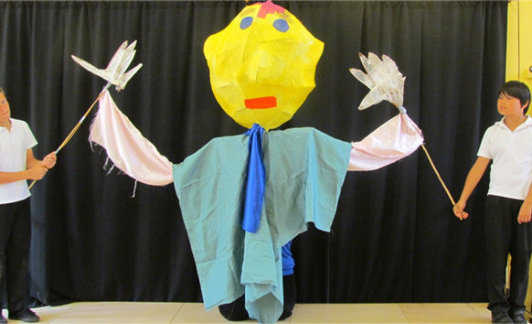
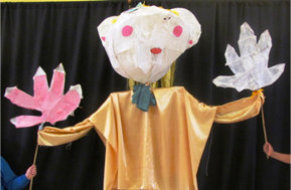
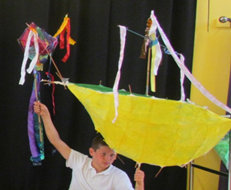
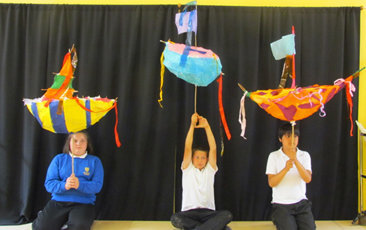
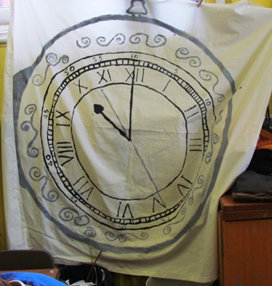
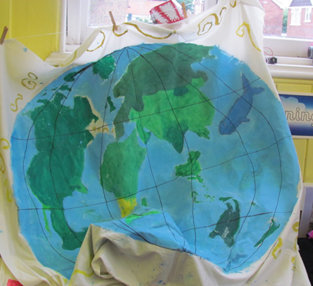
The Procession along Barrow High Street
